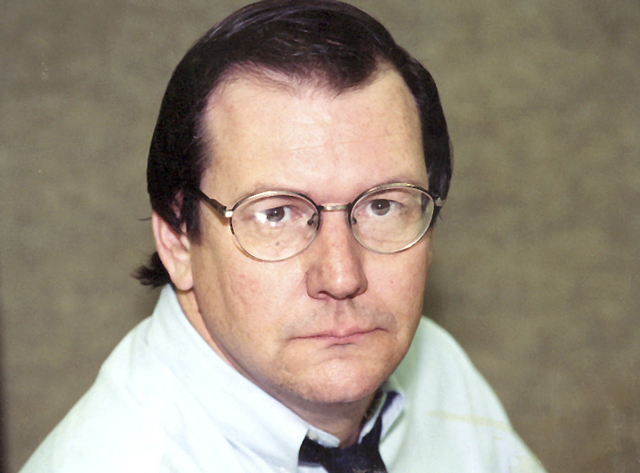Myers: Reid got it done
Since the 1920s, many Nevadans have wanted a national park in eastern Nevada. In 1934, landscape architect William Penn Mott surveyed the area for the National Park Service and recommended creation of the park.
It didn’t happen.
It probably came closest in the 1960s. President Kennedy and then President Johnson sent messages to Congress supporting the park. But Nevada’s two senators – Alan Bible and Howard Cannon – and its sole U.S. House member, Walter Baring, could not agree on the size. The senators wanted 123,380 acres, Baring wanted 53,000 and refused their offer to cut 19,500 acres. The idea died.
Then in 1982 Harry Reid was elected to the U.S. House of Representatives. He decided to put aside the issue of size and get the park. It could always be enlarged later. It worked. He began by pushing through legislation creating a park with 76,800 acres (about 120 square miles), including Wheeler Peak and the Lehman cavern. Newsweek called it the “last great park,” a reference to how difficult it has become to create such parks. The Los Angeles Times described it as “stunning mountains towering above sagebrush-studded desert, alpine lakes, deep limestone caves, lush meadows and groves of gnarled bristlecone pine, the oldest living trees.”
At the dedication of the park in Baker in August 1987, I recall that the Reagan administration did all it could to minimize Reid’s accomplishment. The speaker that day was U.S. Sen. Paul Laxalt of Nevada, who was a reluctant supporter of the park.
But the crowd wasn’t fooled. Its biggest applause was reserved for Reid, who was listed further down on the program as a speaker.
In December 1935, Colorado River Commission reported to Nevada Gov. Richard Kirman that if the state built electrical transmission lines between northern and southern and eastern Nevada, the cost of electricity to consumers would be reduced.
It did not get done. Then, three-quarters of a century later, Harry Reid arrived in the U.S. Senate.
In February 2009, he took on the transmission line project. It was not as easy as passing a bill. He had to keep tending the project—stimulus money here, action from federal regulators there, bills to clear corridors for the transmission lines at least twice, a loan guarantee from the U.S. Department of Energy.
The transmission line is now in being. It is 235 miles long. Reid used the project to reduce coal use and increase renewables.
In this Era of Bad Feelings, when one Las Vegas Sun reader posted a comment wishing for Reid’s death, it can be said of Reid something that is rarely true of many members of Congress, anymore – that he was an effective legislator. He got things done. Laxalt, Reid’s predecessor as senator, spent his last weeks as a senator trying unsuccessfully to enact a new operating agreement for the Truckee River, something innumerable officials had been trying to accomplish for decades. Reid promised it on the night he was elected to the Senate. He spent most of his 30 years in the job keeping the promise. The new operating agreement is now in effect.
In spite of the hatred directed at Reid, rank and file voters seemed to appreciate Reid. Since he arrived in Congress in 1983, he has had only one close race – against John Ensign in 1998. Otherwise, they have all been comfortable wins or landslides.
In the polarized, mean-spirited mess Congress has become, Nevada’s congressional delegation is going to have trouble getting much of anything done in an institution where loyalty to party has been elevated over loyalty to the public.
We should keep that in mind as we contemplate a Nevada future without Harry Reid.
Dennis Myers is an award-winning journalist who has reported on Nevada’s capital, government and politics for several decades. He has also served as Nevada’s chief deputy secretary of state.











